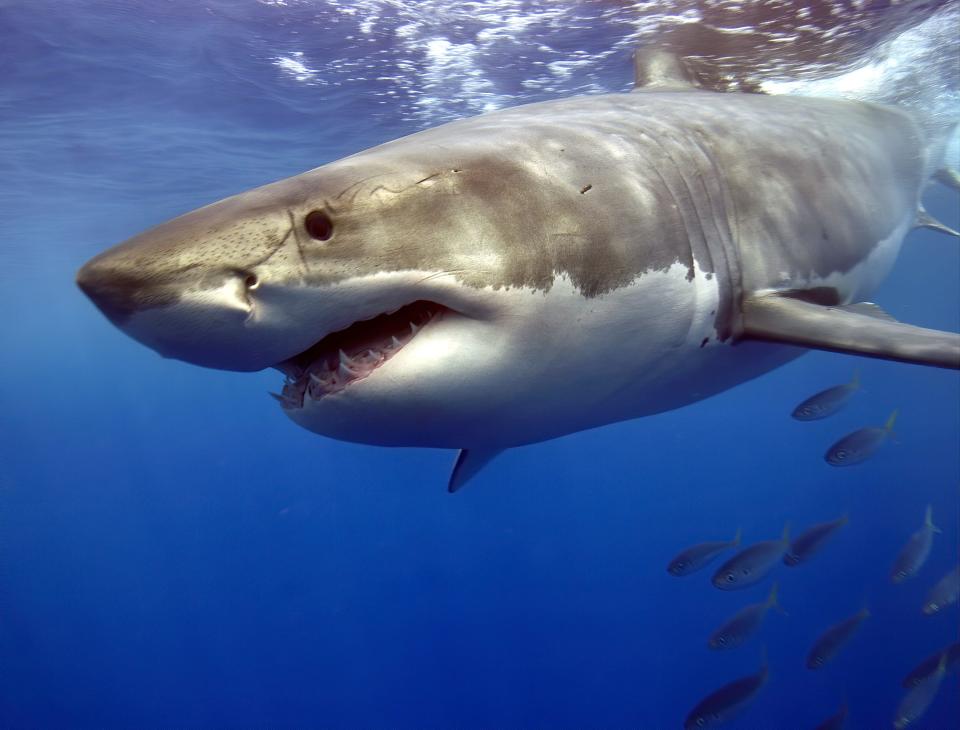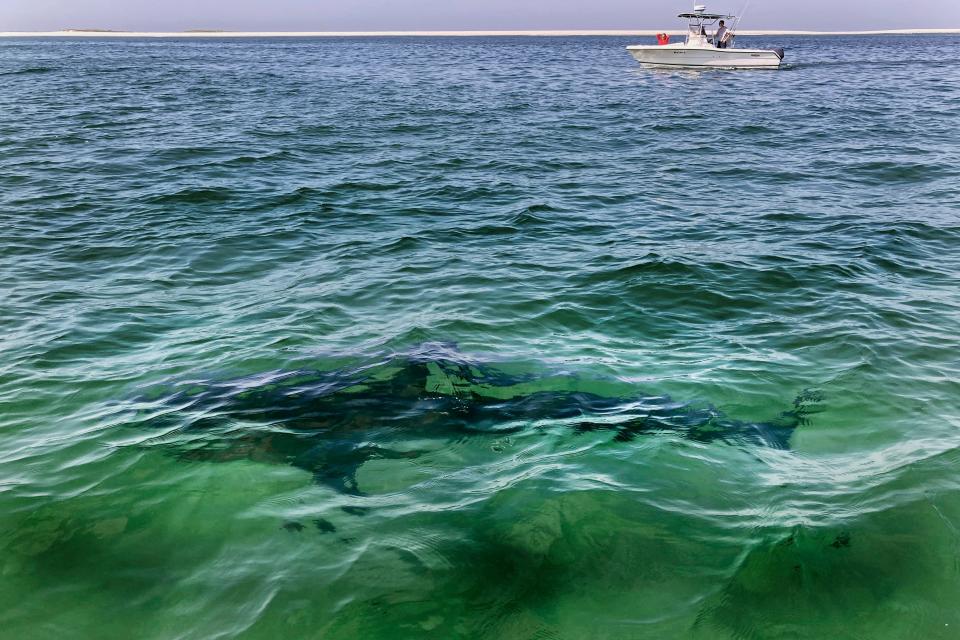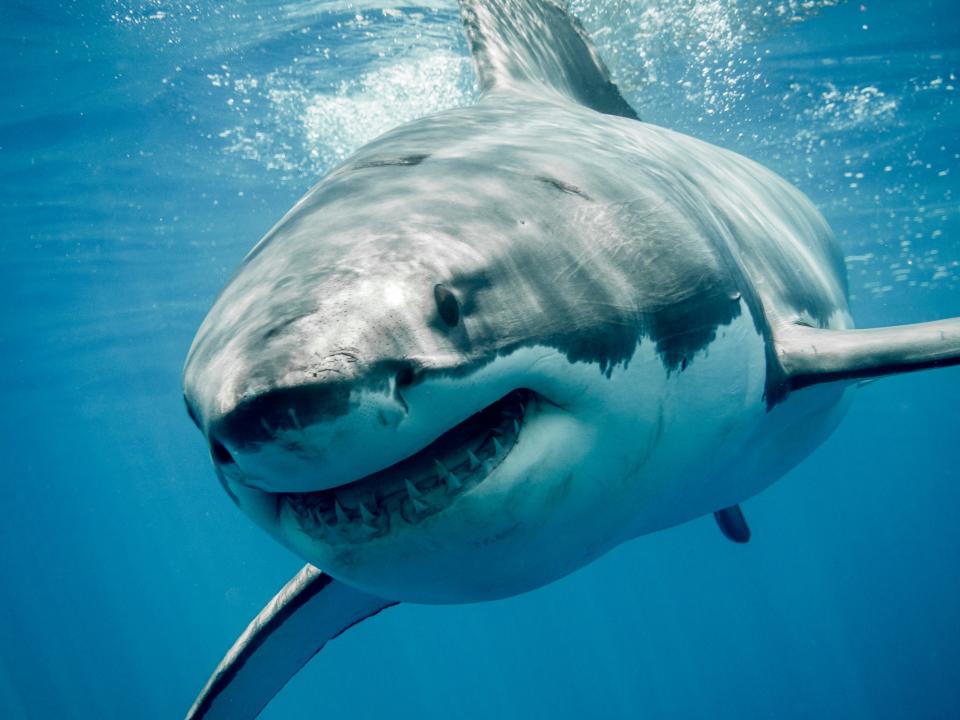Shark Week: A Hampton Beach biologist’s perspective on the ocean’s apex predators
Shark week is approaching, and everyone is wild for those cartilaginous fish. I am compelled to write my annual article with a cautionary tale on why they are considered an apex predator and why we should admire them but remain cautious and respectful when dealing with them as they are still apex predators and wild animals.
So here is my cautionary tale. I never name animals that come into the Oceanarium or my care.
While I respect them and admire them for their unique qualities, they are wild animals and should never be thought of as a pet or have human emotions attributed to them. In my opinion, we should not be naming whales or sharks. Any scientist who does so is risking their unbiased scientific credentials.

Lately, on the news, I have heard many statements about sharks from so-called experts that just made me roll my eyes. Here are a few, “Sharks don’t attack people, they are just curious” or “There aren’t more large sharks, we are just hearing more about them because of social media.” I feel that if a scientist makes these statements, they have lost their objectivity which is essential to being a good scientist.
We have always had many species of sharks in the waters off New Hampshire. Fishermen will tell you that, at times, the waters are teeming with them. They include the smallest spiny dogfish, and the larger blue sharks, thresher sharks, porbeagle sharks, mako, and of course the great white. Don’t forget the basking shark is the second largest shark in the world today, averaging about 26 feet. Fortunately for us they are plankton feeders and have no teeth. Sharks are instinctive and follow their food when in our waters.

Sharks are highly evolved eating machines. We do not know what is going on in their small brain when they locate, hunt, and kill prey. Curiosity is a human emotion; an instinctive animal may bite a human and not eat them, as it just isn’t hungry. It is deciding if a human is food or not, so next time it encounters one while hungry, it will know if they are edible.
Double-crested cormorants: Why these sun-worshipping seabirds are a foe to fishermen
As a biologist, I look at the ocean as a whole. The ecosystem is intricately connected to those animals and plants living within it, and they, in turn, are intricately connected to each other. Any one segment of the living system that becomes over or underpopulated causes drastic changes down the entire food chain and ultimately can change the ecosystem itself. This analysis includes us as human animals. We are part of the food chain.
Since we, as humans, have taken ourselves out of the food chain for marine mammals and sharks, the population of both have multiplied unchecked. Any good scientist will tell you that protecting the top two apex predators in an ecosystem and removing their only predator will cause a cascading imbalance in that ecosystem. A perfect example of this imbalance is the overpopulation of white-tailed deer caused by a cessation of hunting in many areas. The populations have grown to the point of starvation, causing changes in the understory of the forest from over foraging. This has affected the population and health of everything that lives on the forest floor, eventually causing deer ticks to become so prevalent that Lyme disease has become an epidemic in humans.
Killer whales attacking sailboats: Revenge or something else going on?
Let’s look to the ocean now. Apex predators need a lot of protein to survive. As the seal population has increased exponentially, they have begun feeding down the food chain. Eating smaller and smaller fish. As they increase in numbers, they are providing an abundance of food for the larger sharks. Great whites are amazingly efficient at attacking and killing seals. The fishermen say that it is a hair-raising sight when they observe this.
They report that a seal will be swimming alongside the boat one minute, then in a blink of an eye, there is a swirl of water enveloping the seal, and it just disappears to be replaced by bubbling blood. The efficiency of the kill is heart-stopping.
In response to the Cape Cod Times question about why there were so many sharks near Cape Cod, Dr. Greg Skomal likened Cape Cod to “the first rest stop on I-95 when they're headed up north,” referring to the number of tasty seals there.

Dr. Skomal from the Massachusetts Division of Marine Fisheries and the Atlantic White Shark Conservancy have placed satellite tags on 277 great white sharks in the Gulf of Maine. These pings have painted a good picture of the vast migrations these animals undergo and the huge distances they cover in a short period of time. This knowledge can be a blessing and a curse. This information may be frightening to visitors to our coast. On the other hand, it will be incredibly useful to know when they are “pinging” nearshore.
I do agree with one of the often-repeated statements, “We are interlopers in their space, and we look a lot like a seal,” for all we know, we may even taste like a seal (just joking).
When swimming or recreating in the ocean, be aware that you are a visitor, and stay vigilant for any marine mammals and know when to get out of the water. Often shark attacks are stealthy and you won’t see one coming, but you can be sure that if there are marine mammals in the water there may be sharks nearby.
Stay tuned next week for my next article on shark biology.
Ellen Goethel is a marine biologist and the owner of Explore the Ocean World at 367 Ocean Blvd. at Hampton Beach.
This article originally appeared on Portsmouth Herald: Shark Week: A biologist’s perspective on the ocean’s apex predators

